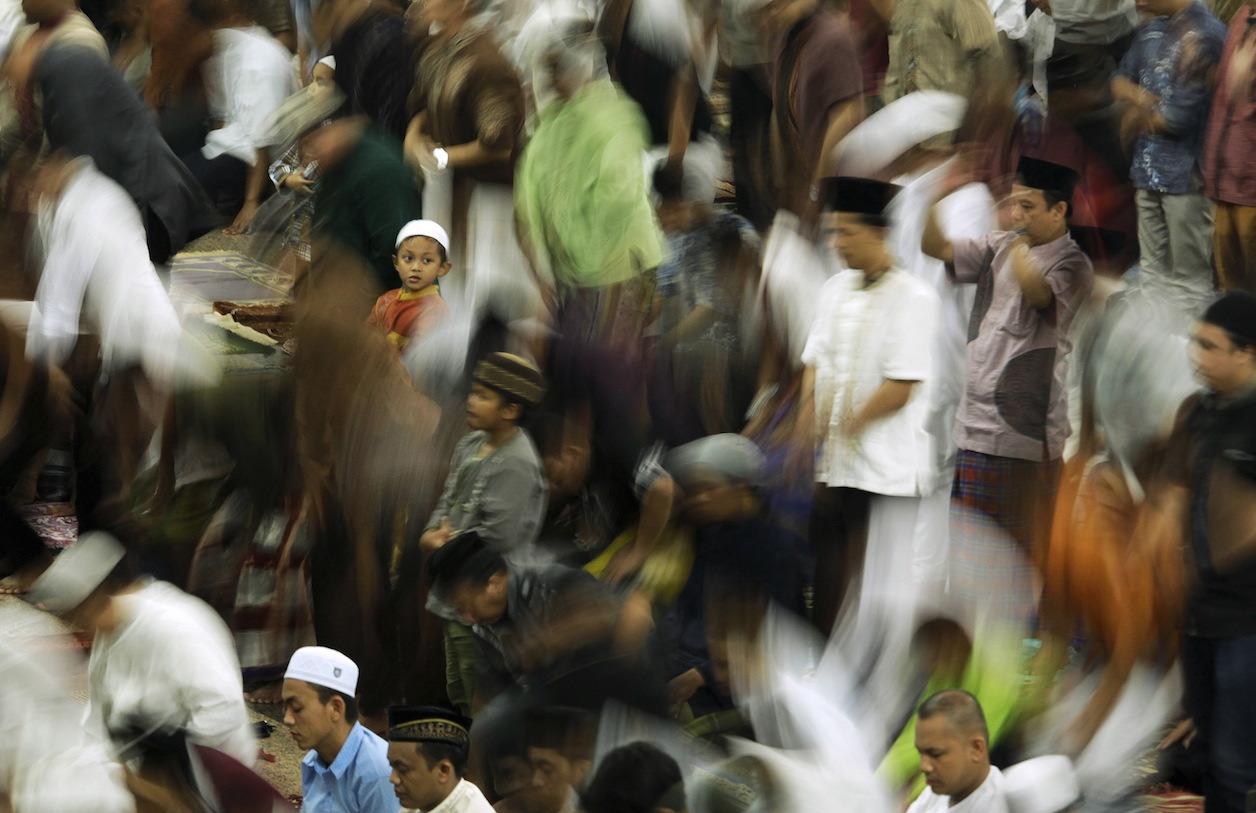Ramadan: A history of the holy month
Indonesian Muslims attend Ramadan tarawih prayer at Al Markas Al Islami mosque in Makassar, Indonesia, June 17, 2015.
Millions of Muslims around the world are currently observing Ramadan, a holy month in the Islamic calendar marked by worshippers abstaining from food or drink between sunup and sundown. But why is Ramadan so important for Muslims? And what exactly is the purpose of a fast?
GlobalPost answers some frequently asked questions about the holy month.
What's the historical significance of Ramadan?
Muslims believe that it was during the month of Ramadan that the Koran was first revealed in its entirety to Prophet Muhammad by the angel Gabriel, on what is known as "Laylat al-Qadr."
Why do Muslims fast?
Fasting (or "sawn" in Arabic) is one of the five pillars of Islam. Along with not eating or drinking between sunrise and sunset, fasting Muslims abstain from eating, drinking, smoking and sexual intercourse.
The purpose of the fast is to purify oneself from thoughts and deeds that counter Islam. According to clerics, by removing material desires, a Muslim is able to fully devote oneself to God. For this reason, many Muslims attempt to purge themselves of other impure behaviors during Ramadan such as cursing, anger, and greed.
How long does Ramadan last? Does everyone have to participate?
According to the Koran, fasting is mandatory for all Muslims for the entire thirty days of the holy month. However, there are some groups who do not have to fast. Pregnant or breastfeeding mothers, people who are seriously sick, travelers, or anyone at a health risk are not expected to skip meals. Children who have not gone through puberty are also not required to fast during the month.
The article you just read is free because dedicated readers and listeners like you chose to support our nonprofit newsroom. Our team works tirelessly to ensure you hear the latest in international, human-centered reporting every weekday. But our work would not be possible without you. We need your help.
Make a gift today to help us reach our $25,000 goal and keep The World going strong. Every gift will get us one step closer.
